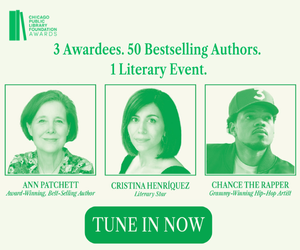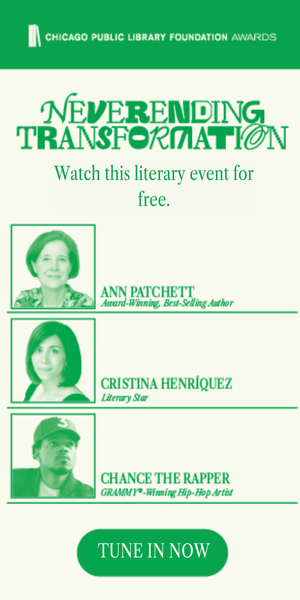
Read This, Then That: THE NARROW ROAD TO THE DEEP NORTH and PATRIOTISM
In Read This, Then That, we pair new books with classics that have similar themes, structures, and stories.
 Richard Flanagan, celebrated Tasmanian author, has been shortlisted by the Man Booker Prize committee for his novel of horrified Australian experiences in World War II, The Narrow Road to the Deep North. Viewers (and readers) of The Bridge on the River Kwai will be familiar with its basic subject: Imperial Japan’s Bangkok-Burma railway project, built by prisoners of war in impossible jungle conditions.
Richard Flanagan, celebrated Tasmanian author, has been shortlisted by the Man Booker Prize committee for his novel of horrified Australian experiences in World War II, The Narrow Road to the Deep North. Viewers (and readers) of The Bridge on the River Kwai will be familiar with its basic subject: Imperial Japan’s Bangkok-Burma railway project, built by prisoners of war in impossible jungle conditions.
The novel focuses on Dorrigo Evans, a Tasmanian himself who won a scholarship to continue school past the age of 12, right up to university and medical school. A surgeon in Melbourne, he lets his life simply flow in the “right” direction, climbing the social ladder and securing himself a presumptive fiancée from a good family. The war puts a pause on their plans—if you can really call them plans—and Dorrigo is tossed first to Adelaide, where he awaits shipping out (and falls fatefully in love with his uncle’s wife), and later to the Middle East and, eventually, a POW camp in greenest, uncleanest Burma.
Evans soon becomes the most senior officer at the camp (prisoners die quickly here), and, as a surgeon, is uniquely positioned both to help his men and to blame himself for failing to help them more. Despite the novel’s prize nomination, Flanagan doesn’t seem to have much original to say about the horrors of slave labor—though that hardly makes the book uninteresting from an Australian and a historical perspective. But as the War winds down, the remaining prisoners are shipped home, and The Narrow Road from the Deep North follows not just Evans and the small remainder of his battalion but also the Japanese and Korean forces who guarded—and tortured—them for years.
Some may find the ending less than satisfying. Many unanswered questions remain about our protagonist and his lady love. But the glimpses into post-War Japan, the detentions and trials of some camp guards while others slip away scot-free for geopolitical reasons, and the time, decades later, when the Japanese commanders of the POW camp realize that not only do they no longer need to hide, but they can almost publicly brag about the things they did back in Burma—these are fascinating, and point to the long trajectory of resurgent nationalism in the defeated post-Empire.
Nakamura was thinking about what Tomokawa had said and the common-sense wisdom of it all. For they had built a railway in fifteen months that the English ahd said could not be built in five times that period. …They had battled disease, starvation and Allied air raids. It was not easy making sick men work, but how would the railway have been built if they had relied solely on the almost non-existent ranks of the healthy? He understood that he once could have stood accused of the deaths of perhaps hundreds of romusha and POWs. How many? He had no idea how many.
But in a jungle without end, where transport was difficult, sickness and death everyday companions, he knew that he had selflessly performed his duty with devotion and honour. The railway had been a triumph of Japanese spirit. …It was beyond his power to stop the deaths, because the railway had to be built for the Emperor, and the railway could not have been built any other way. He remembered with a sadness that felt ennobling the deaths of his and Tomokawa’s comrades, both those who had died of disase in the jungle, and those later hanged by the Americans.
 For readers who find themselves fascinated, as I did, by this relatively unusual look at post-War Japanese life, a little Yukio Mishima may be in order. Mishima himself, in 1970, went to the Tokyo headquarters of the Eastern Command of Japan’s Self-Defense Forces, gave a speech intending to rouse the soldiers there into executing a coup to restore the power f the emperor, and on its failure returned inside to commit seppuku. This was likely not a spur-of-the-moment decision, and it’s a topic Mishima also addressed in his fiction.
For readers who find themselves fascinated, as I did, by this relatively unusual look at post-War Japanese life, a little Yukio Mishima may be in order. Mishima himself, in 1970, went to the Tokyo headquarters of the Eastern Command of Japan’s Self-Defense Forces, gave a speech intending to rouse the soldiers there into executing a coup to restore the power f the emperor, and on its failure returned inside to commit seppuku. This was likely not a spur-of-the-moment decision, and it’s a topic Mishima also addressed in his fiction.
His 1961 novella Patriotism is about that and only that: the ritual of ritual suicide. An act that Evans’s Japanese captor is not able to carry out himself—instead he ends up foraging in a post-apocalyptic Tokyo and stealing from prostitutes—is, for Patriotism’s protagonist and his wife, the only available path. And they follow it, somehow, unflinchingly, despite its difficulty.
His will power and courage, which had seemed so robust before he made the incision, had now dwindled to something like a single hairlike thread of steel, and he was assailed by the uneasy feeling that he must advance along this thread, clinging to it with desperation.
Patriotism is not exactly a pleasant story—but then, neither is Flanagan’s tale of slave labor, disease, and abuse. But they’re connected by a vital thread that still runs through Japanese culture today, and though Flanagan appears to have set out to write a novel of Australian war experience, he left this reader much more fascinated by Australia’s former enemy, and what’s happened to it since then.










